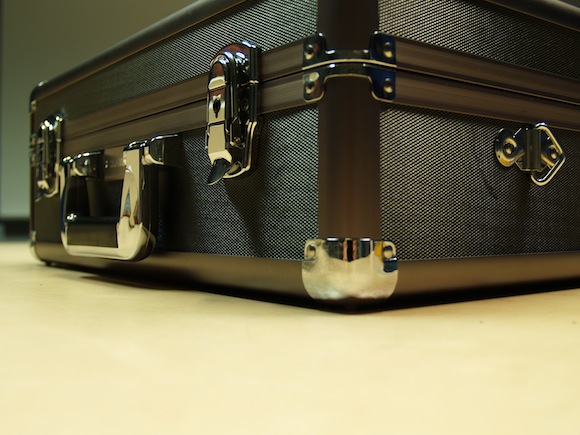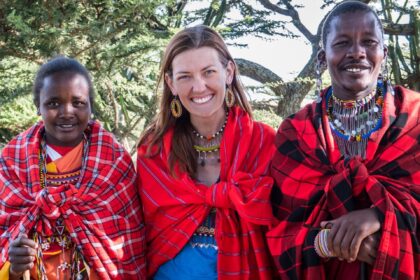
Volunteering abroad is not easy, and it takes a certain kind of person to participate in voluntourism. In fact, it takes a certain type of person to even think about going on a trip like this. While it is normal to be nervous about embarking on such an endeavor, there are ways to prepare yourself for a volunteer trip abroad.
Do Your Homework
Not all voluntourism agencies are alike, and you need to be careful and do a lot of research before choosing exactly which company you want to go through. If you feel that going through a middle-man is not necessary for you, a website such as SE7EN includes a network of NGO’s that offer free and low-cost volunteering options and allows you to directly connect with the organization you want to volunteer with in the host country. If it’s your first time volunteering abroad — or even if it’s not but you feel more comfortable having everything organized for you — an organization such as International Volunteer Headquarters can offer low cost volunteering opportunities abroad in a range of countries, while also putting you in touch with the host NGO and offering support 24/7. They will also ensure that you receive airport pickup, which can relieve a lot of stress for volunteers.
If you are looking to really immerse yourself in the culture, these more low-cost options usually offer housing such as home-stays and communal living spaces, which can give you a clearer look into the lives of the locals. Many times, the more expensive companies and projects will put volunteers in hotels or cook Western-style meals for them. Of course, if you’re looking for comfort, this may be your best bet.
Another option is to go abroad with an organization from your home city that volunteers abroad, such as Habitat for Humanity. By doing this, you can ensure that you are going with a legitimate organization and can familiarize yourself with the projects they participate in.

Think About What You Want To Get Out Of The Project
There are myriad of volunteer projects available to people wishing to volunteer abroad, and each will give a completely different experience. If you love animals then try to find a project that allows you to work with wildlife, and make sure you know the program details. Will you actually get to care of the animals or just clean up after them? If your goal is to get close with children then orphanage work may be a better idea than teaching English, as many times in a teaching program you may find yourself being bounced around to different schools, making it difficult to form relationships with the children (although double check on this as every program is different). However, if you want to strengthen your teaching skills while making a difference and think classroom work could be something you could add to your resume, then go for it. Other programs could range from healthcare to agriculture to community development and beyond, so make sure you are signing up for the program that will give you the most benefit.
Fundraise
There are a few ways to go about fundraising. You can fundraise in order to help pay off your trip or to donate money or resources to the project you are working on. Another option is to portion donations so that some is used toward your own airfare and program fees and the other portion goes straight to the project. Asking family and friends, setting up a bake sale, putting donation cans out at local businesses, holding a car wash or sporting event, or hosting a party are all ways that money can be raised before your volunteer vacation.
If you don’t want to donate money, you can find out what resources could be useful to the program, such as school supplies, toys, or medicine. If you want to use your creativity, you could try sponsoring a project within the program you are volunteering for. For example, when I did orphanage work in Ghana our group built a chicken coup and purchased chickens so the eggs could be sold for money or eaten for protein.

Visit A Travel Doctor
It is always wise to visit a travel doctor before journeying abroad. Because you are volunteering abroad, chances are the region you are visiting is a 2nd or 3rd world country, meaning your chances of contracting an illness increase while your healthcare options in-country decrease. Don’t let this scare you away from going abroad, as a travel doctor can give you the proper vaccinations and medications to help ensure you don’t get sick during your travels. And even if you believe you are immune to disease, there are sometimes vaccines required to be allowed to enter a country, so visiting a travel doctor can save you from being stopped at the border and sent home.
Get Travel Insurance
That being said, not all vaccines and medications are a 100% guarantee. You don’t want to find yourself ill without insurance in another country. Aside from being sick, there are other things that could wrong such as flight cancellations, lost luggage, injuries and more. With the way the world has been lately it wouldn’t be all that far fetched to experience a natural disaster while abroad. Check with your home insurance as well as any travel credit cards you have and see what you are already covered for, then contact a company such as Allianz Travel Insurance or World Nomads to get covered for anything else.
Say Goodbye To The Comforts Of Home
It is true many Westerners take for granted everyday resources, and you may not even realize what you are missing until it is not there. Where you are placed may not have running water, so packing items like baby wipes, hand sanitizer, and dry shampoo is ideal. Toilet paper is also a smart item to pack, as not everywhere in the world uses it. Electricity and cell phone service are also not guaranteed, so make sure to prepare family and friends with this knowledge so that they will not worry if you are not in touch with them everyday. Also, pack a flashlight as well as some non-technological entertainment, such as books, crosswords, and playing cards.

Learn The Local Customs And Pack Appropriately
Many people forget there are other cultures in the world who do not think and dress the way we do. This is often not because other cultures don’t like Western style of dress, but because it is offensive to show so much skin. For example, if you were volunteering in Thailand, packing shorts and tank tops would be inappropriate, as showing shoulders and knees in public is considered disrespectful. At the same time, you do not want to bring a professional suit and dress clothes when you will most likely be running around in the dirt in the hot sun. Your program adviser will probably send you a packet giving you this information beforehand, so read it. And if you have any questions, ask.
Talk To Previous Volunteers
The internet has made anything possible, and finding past volunteers from your program is doable with a little research. Many companies cannot give out names directly due to privacy issues, however, check to see if there is a testimonials page on their website or a Facebook group where you can send past volunteers messages. You can also try Googling the program details to find message boards where you can post a question or read other peoples’ advice about the program. Check travel and volunteer boards as well, as these are great resources to connect with other travelers.
Remove Your Rose-Tinted Glasses
When going abroad, many volunteers have happy images of them changing the lives of the people they are helping. In reality, chances are the problems that existed before you arrived at the program will still exist when you leave. That is not to say what you are doing is pointless, because even if you are just playing with children you are still bringing them happiness they would not have otherwise experienced. While you will most likely make some impact, don’t think that you are going to change the world during your trip. It is much easier to acknowledge this fact before you go instead of letting it drag you down during the program. Focus on making small changes that can have a positive impact on the community, and realize you are making a difference to someone.
Jessica Festa
Latest posts by Jessica Festa (see all)
- A Culturally-Immersive Adventure In Mongolia’s Altai Mountains - Jul 8, 2023
- This Recipe Sharing Platform Supports Women In The Culinary Industry (Labneh Recipe Included!) - Nov 5, 2020
- Hiking The Mohare Danda Community Eco-Trek In Nepal - Jun 3, 2020
- 6 Important Questions For Choosing A Responsible Yoga Retreat - May 18, 2020
- How To Create & Grow A Profitable Blogging Business (Ethically) - Jan 18, 2020



